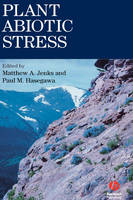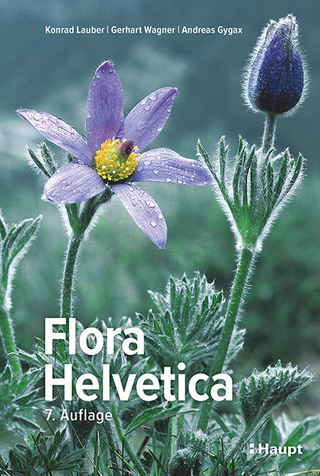
Plant Abiotic Stress
Blackwell Publishing Ltd (Verlag)
978-1-4051-2238-2 (ISBN)
- Titel ist leider vergriffen;
keine Neuauflage - Artikel merken
Dr Matthew Jenks and Professor Paul Hasegawa, both Centre for Plant Environmental Stress Physiology, Purdue University, Indiana, USA
1. Eco-physiological adaptations to limited water environments. Andrew J. Wood, Department of Plant Biology, University of Southern Illinois, USA. 2. Plant cuticle function as a barrier to water loss. S. Mark Goodwin and Matthew A. Jenks, Department of Horticulture and Landscape Architecture, Purdue University, West Lafayette, Indiana, USA. 3. Plant adaptive responses to salinity stress. Miguel A. Botella and Abel Rosado, Depart. Biologia Molecular y Bioquimica, Universidad de Malaga, Spain and Ray A. Bressan and Paul M. Hasegawa, Department of Horticulture and Landscape Architecture, Purdue University, West Lafayette, Indiana, USA. 4. The CBF cold-response pathway. Sarah Fowler, Daniel Cook and Michael F. Thomashow, MSU-DOE Plant Research Laboratory, Michigan State University, East Lansing, USA. 5. Plant responses to high temperature. Jane Larkindale, Michael Mishkind and Elizabeth Vierling, Department of Biochemistry and Molecular Biophysics, University of Arizona, Tucson, USA. 6. Adaptive responses in plants to non-optimal soil pH. V. Ramirez-Rodriguez, J. Lopez-Bucio and Luis Herrera-Estrella, Departamento de Ingenieria Genetica de Plantas, Centro de Investigacion y Estudios Avanzados de Instituto Politecnico Nacional, Guanajuato, Mexico. 7. Plant responses to herbicides. William E. Dyer and Stephen C. Weller, Department of Horticulture and Landscape Architecture, Purdue University, West Lafayette, Indiana, USA. 8. Integration of abiotic stress signalling pathways. Manu Agarwal and Jian-Kang Zhu, Department of Biochemistry and Molecular Biophysics, University of Arizona, Tucson, USA. 9. Genomic analysis of stress response. Motoaki Seki, Junko Ishida, Maiko Nakajima et al, Plant Mutation Exploration Team, Plant Functional Genomics Research Group, RIKEN Genomic Sciences Center (GSC), RIKEN Yokohama Institute, Japan. References. Index
| Erscheint lt. Verlag | 21.6.2005 |
|---|---|
| Reihe/Serie | Biological Sciences Series |
| Zusatzinfo | 17 |
| Verlagsort | Oxford |
| Sprache | englisch |
| Maße | 167 x 240 mm |
| Gewicht | 574 g |
| Themenwelt | Naturwissenschaften ► Biologie ► Botanik |
| ISBN-10 | 1-4051-2238-2 / 1405122382 |
| ISBN-13 | 978-1-4051-2238-2 / 9781405122382 |
| Zustand | Neuware |
| Haben Sie eine Frage zum Produkt? |
aus dem Bereich


